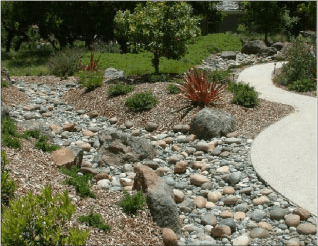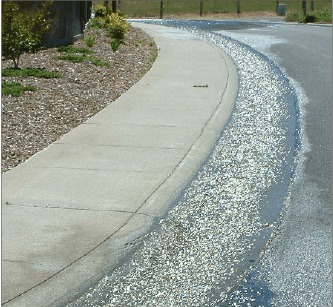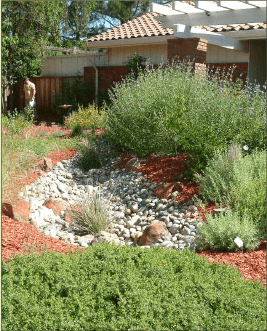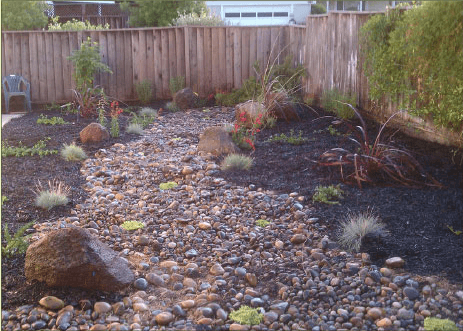
Importance of Watershed
A watershed is a land area that drains rain and other water into a creek, river, lake, wetland, or groundwater aquifer. Water from your neighborhood also enters the watershed through the storm drain system and flows directly to local creeks and the ocean without any treatment. It often is contaminated by pollutants that can be toxic to fish, wildlife, and people.
Stormwater Runoff
Stormwater runoff is the water that flows over paved surfaces or landscaping after rain (a storm), irrigation, or other water use which produces more water
than the ground can absorb. As the runoff travels, it can pick up litter, pesticides, fertilizers, pet waste, motor oil, and other pollutants, washing these substances into our neighborhood creeks and the ocean. Replacing non-permeable surfaces with permeable material, any material that allows water to flow through, greatly helps with absorption and reducing runoff. Materials such as sand and gravel, can be installed in pathways to control runoff and improve water quality by filtering pollutants through the ground. The end result is cleaner, healthier waterways in our community.

Home Steps to Protect the Watershed:
1. Clean up outside your home including trash, leaves, yard clippings, and pet waste.
2. Water the yard only as needed and avoid spraying streets, sidewalks, and driveways to prevent water from carrying pollutants directly into storm drains.
3. Divert rainspouts and garden hoses away from paved surfaces. Provide landscaping next to sidewalks and driveways to help collect and filter rain runoff.
4. Control erosion around your property to prevent dirt and debris being carried into the storm drain.
5. Read labels on pesticides, herbicides, and fungicides prior to use and follow instructions carefully. Try Integrated Pest Management (IPM) as a less toxic alternative for yard pest management. www.ipm.ucdavis.edu
Dry Creek Beds
Water coming through the landscape can be funneled into dry creek beds with catch basins.

